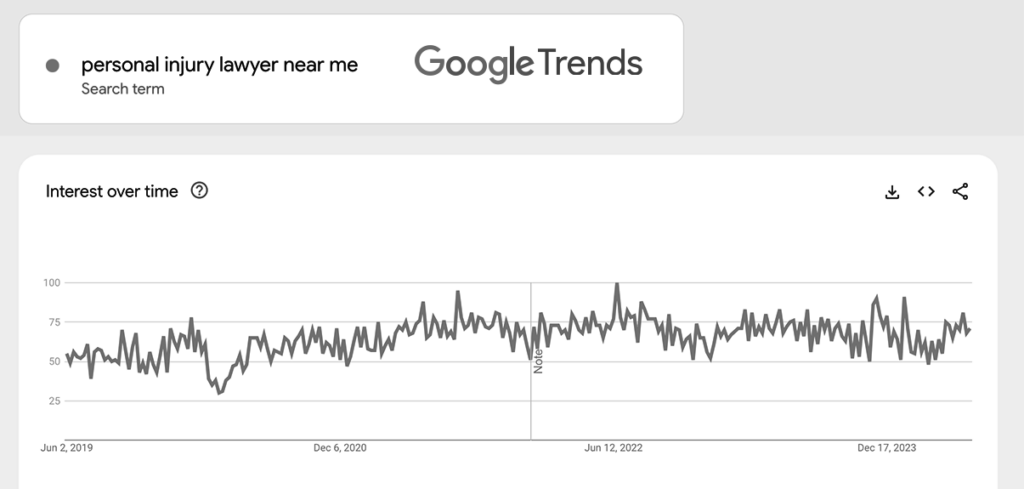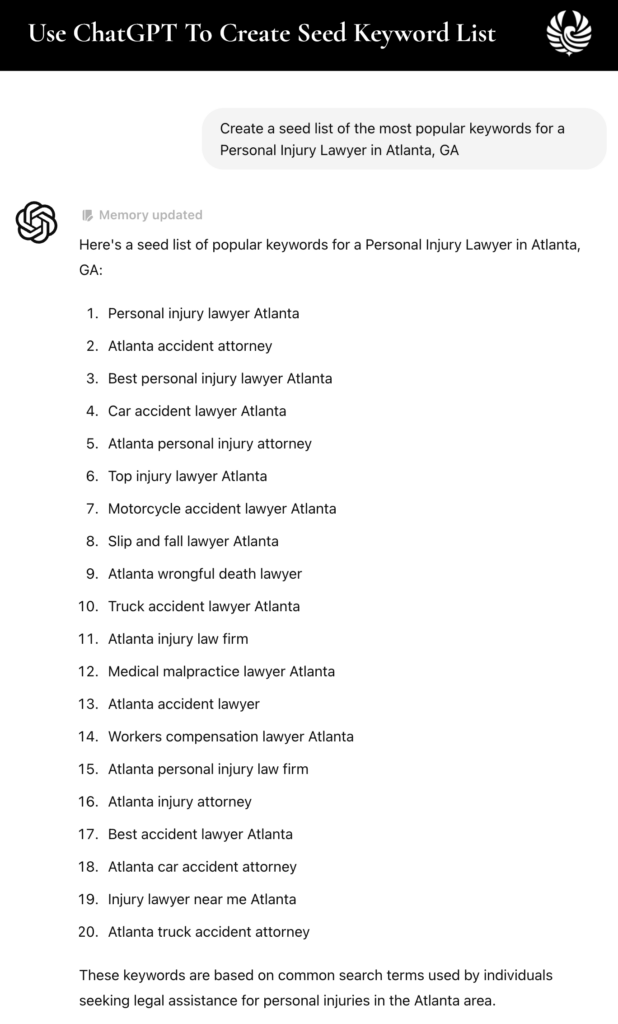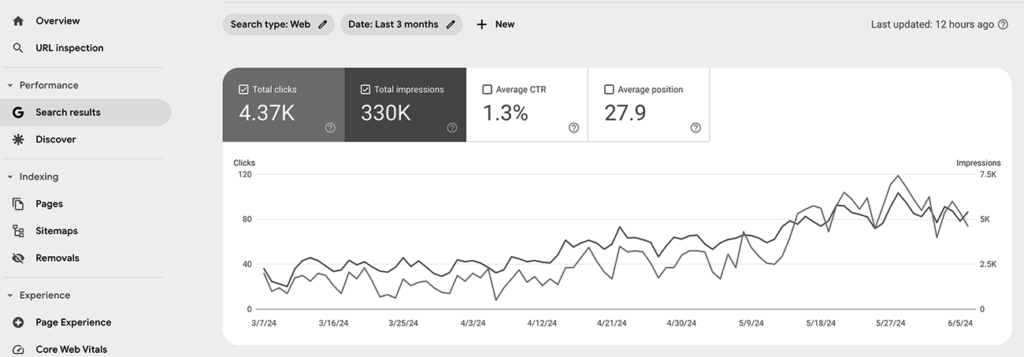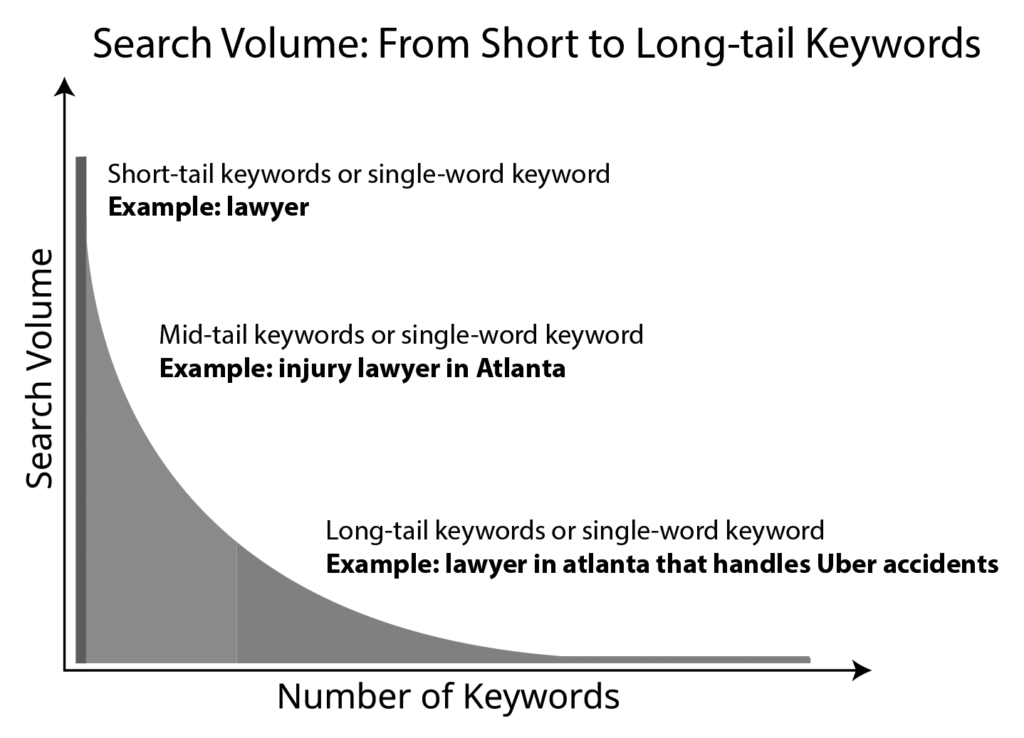Key Highlights
- Keyword research is crucial for law firms to attract potential clients and improve their online visibility
- Understanding the importance of keywords and how they impact organic traffic and search engine optimization
- Tools and resources to effectively conduct keyword research for law firms
- Step-by-step guide to conducting keyword research, including identifying core legal services and analyzing keyword competitiveness
- Advanced tips for legal keyword optimization, including local SEO and link building strategies
- Conclusion: Keyword research is an essential aspect of digital marketing for law firms, helping them target the right audience and drive more traffic to their website.
Introduction
Keywords are the foundation of any successful digital marketing strategy, and law firms are no exception. With the right keyword research, law firms can optimize their website content, attract potential clients, and improve their online visibility. In this blog, we will explore the importance of keyword research for lawyers and provide essential tips for beginners to conduct effective keyword research.
Understanding the Importance of Keyword Research in Legal SEO
In the highly competitive field of law, having a strong search rankings is crucial for law firms to attract potential clients. Keyword research plays a significant role in legal SEO by helping law firms identify the right keywords to target in their website content. By optimizing their content for relevant keywords, law firms can improve their search engine rankings, increase their organic traffic, and ultimately attract more potential clients.

Why Keywords Matter for Lawyers
Keywords are the phrases that potential clients use when searching for legal services online. By targeting these keywords in their website content, law firms can ensure that their website appears in search engine results when potential clients are searching for relevant services. This organic traffic can lead to more page views, more potential clients, and ultimately more business for the law firm. Digital marketing strategies, such as search engine optimization (SEO), rely heavily on keyword research to ensure that the right keywords are targeted and that the law firm’s website is visible to potential clients.
The Impact of Targeted Keywords on Online Visibility
Targeted keywords have a significant impact on a law firm’s online visibility. When potential clients search for specific legal services, the search engine results page (SERP) displays websites that are relevant to those keywords. By targeting the right keywords in their website content, law firms can improve their chances of appearing in these search results, increasing their online visibility, and attracting potential clients. For example, if a personal injury lawyer targets keywords such as “personal injury attorney” or “car accident lawyer,” their website is more likely to appear in the search results when potential clients search for those terms. This increased visibility can lead to more website traffic and ultimately more potential clients for the law firm.
Preparing for Keyword Research: What You Need to Know
Before diving into keyword research, it’s essential to understand the basics and have a clear plan in place. Law firms need to know what keywords they should target, how to conduct keyword research effectively, and what tools and resources are available to assist them. This section will provide an overview of what lawyers need to know before embarking on their keyword research journey.
Use AI to Create an Initial “Seed Keyword” List
Your initial seed list documents the core keywords that match your services and some of the most popular keywords used to find attorneys. Utilizing AI is a great way to start the process. You can use a free ChatGPT account and enter a prompt like “Create a seed list of the most popular keywords for a Personal Injury Lawyer in Atlanta, GA”. You now have a great start to your keyword research and can build on that list with additional tools and resources.

Essential Tools and Resources for Effective Keyword Research
There are several tools created specifically for keyword research that can assist law firms looking for detailed information on keywords. Some popular tools include Google Keyword Planner, Ahrefs Keyword Explorer, and Moz Keyword Research Tool. These tools provide insights into search volume, keyword difficulty, and related keywords that can help law firms identify the right keywords to target in their website content.
Additionally, there are resources such as Google Trends, which can provide valuable information on keyword trends and search volume over time. By utilizing these tools and resources, law firms can gain a better understanding of their target audience and tailor their keyword research to meet their specific needs.

Identifying low hanging fruit in your current keywords
Begin by assessing your current keywords to uncover any potential opportunities. Use Google Search Console to pinpoint keywords that are ranking low on the first page or high on page two of search results. Look for keywords with high impressions but low click numbers, as these are likely positioned at the bottom of the first page, receiving views but not clicks. This presents a valuable chance as Google has already recognized the page’s relevance for a keyword; now, you can concentrate on enhancing its ranking to reach the top 3. These keywords already attract some traffic and can be optimized further for increased visibility.
Understanding Your Audience: Tailoring Keywords to Client Needs
To conduct effective keyword research, law firms must understand their target audience and tailor their keywords to meet their needs. By identifying their target audience and conducting market research, law firms can gain insights into the keywords and phrases that potential clients are using when searching for legal services. This information can then be used to create a list of relevant keywords that will attract potential clients to the law firm’s website. By targeting specific keywords that are relevant to their target audience, law firms can increase their chances of attracting potential clients and driving more traffic to their website.
Step-by-Step Guide to Conducting Keyword Research for Lawyers
Keyword research can be a complex process, but with a step-by-step guide, law firms can navigate the process more effectively. This section will provide a detailed step-by-step guide to conducting keyword research for lawyers, including identifying core legal services, generating seed keywords, expanding the keyword list using research tools, analyzing keyword competitiveness and search volume, and selecting the right keywords for the law firm.
Step 1: Identifying Your Core Legal Services
The first step in conducting keyword research for lawyers is to identify their core legal services. This involves determining the main areas of law that the law firm specializes in, such as personal injury, divorce, or criminal defense. By identifying these core legal services, law firms can focus their keyword research on keywords that are relevant to their specific practice areas. This will help them attract potential clients who are searching for those specific services and increase their chances of ranking in the search engine results for those keywords.
Step 2: Generating Seed Keywords Related to Your Practice Areas
Once law firms have identified their core legal services, the next step is to generate seed keywords related to those practice areas. Seed keywords are the basic keywords that represent the topics or themes that the law firm wants to target. For example, if a law firm specializes in personal injury law, their seed keywords could be “personal injury attorney,” “car accident lawyer,” or “slip and fall attorney.” These seed keywords will form the basis of the law firm’s keyword research and can be used to generate a list of related keywords that potential clients might use when searching for legal services.
Step 3: Expanding Your Keyword List Using Research Tools
To expand the keyword list, law firms can utilize research tools such as Google Trends, Ahrefs Keywords Explorer, and phrase match. These tools provide insights into keyword trends, search volume, and related keywords that can help law firms identify additional keywords to target in their website content. By using these research tools, law firms can gain a better understanding of the keywords that potential clients are using when searching for legal services and can tailor their keyword research to meet their specific needs.
Step 4: Analyzing Keyword Competitiveness and Search Volume
Once law firms have generated a list of potential keywords, the next step is to analyze the keyword competitiveness and search volume. Keyword competitiveness refers to how difficult it is to rank for a specific keyword in the search engine results. Law firms should focus on keywords with lower competition to increase their chances of ranking higher in the search results. Search volume refers to the number of searches that a keyword receives in a given period. Law firms should target keywords with higher search volume to attract more potential clients to their website.
Step 5: Selecting the Right Keywords for Your Law Firm
After analyzing the keyword competitiveness and search volume, law firms can then select the right keywords for their specific practice areas. The selection process should involve choosing keywords that are relevant to the law firm’s target audience and have a reasonable level of competition. By selecting the right keywords, law firms can increase their chances of ranking higher in the search engine results and attracting potential clients to their website.
Advanced Tips for Legal Keyword Optimization
In addition to the basic steps of keyword research, there are some advanced tips that law firms can employ to optimize their keywords further. This section will provide advanced tips for legal keyword optimization, including local SEO strategies, organic search optimization, and link building techniques. By implementing these advanced tips, law firms can enhance their keyword optimization efforts and improve their online visibility.
Local SEO Strategies for Lawyers: Focusing on Geographic Keywords
When it comes to keyword research for lawyers, one important aspect to consider is local SEO. Law firms often serve clients in specific geographic areas, which makes it crucial to focus on geographic keywords. These keywords include location-specific terms such as city names, neighborhoods, or even landmarks. By incorporating these geographic keywords into their website content, law firms can increase their visibility in local search results and attract potential clients in their target areas. Additionally, optimizing their Google My Business profile and listing their business on local citation sites and directories can further enhance their local SEO efforts. Overall, focusing on geographic keywords is an essential strategy for lawyers to reach their local audience and drive targeted traffic to their websites.
Monitoring Your Keyword Rankings and Adjusting Your Strategy
Once law firms have conducted keyword research and implemented their keyword strategy, it is important to monitor their keyword rankings and make adjustments as needed. Keyword rankings can fluctuate over time due to various factors, such as changes in search algorithms and competition. By regularly tracking their keyword rankings, law firms can identify any decline in ranking and take corrective actions to improve their visibility in search engine results. Additionally, monitoring keyword rankings allows law firms to identify new keyword opportunities and optimize their content accordingly. This may involve updating existing content, creating new content, or adjusting on-page SEO elements. By continuously monitoring and adjusting their keyword strategy, law firms can ensure that their website remains optimized for relevant keywords and search intent, ultimately driving more organic traffic and attracting potential clients.
Avoiding Common Keyword Research Mistakes Lawyers Make
Keyword research is a crucial aspect of any law firm’s SEO strategy. However, there are common mistakes that lawyers often make when conducting keyword research. One common mistake is overlooking long-tail keywords. Long-tail keywords are more specific and targeted, and they often have lower competition, making it easier for law firms to rank for them. Another common mistake is ignoring search intent. It’s important to understand the intent behind a user’s search and align the keyword strategy accordingly. By avoiding these common mistakes and conducting comprehensive keyword research, law firms can improve their SEO and attract more potential clients.

Overlooking Long-Tail Keywords
One common mistake that lawyers make when conducting keyword research is overlooking long-tail keywords. Long-tail keywords are more specific and targeted phrases that are usually longer and more descriptive. While they may have lower search volume compared to broader keywords, they often have higher conversion rates because they are more likely to match the search intent of potential clients. For example, instead of targeting a generic keyword like “personal injury attorney,” a law firm could target a long-tail keyword like “best personal injury attorney in Los Angeles.” By incorporating long-tail keywords into their content, law firms can attract highly relevant traffic and increase their chances of converting visitors into clients. Therefore, it is essential to include long-tail keywords in the keyword research strategy to maximize the effectiveness of a law firm’s SEO efforts.
Ignoring Search Intent
Another common mistake that lawyers make when conducting keyword research is ignoring search intent. Search intent refers to the underlying motivation or purpose behind a user’s search query. Understanding search intent is crucial because it helps law firms align their keyword strategy with the needs and expectations of potential clients. For example, if a user searches for “how to file a personal injury claim,” their intent is likely to seek information and guidance on the process of filing a claim. Therefore, a law firm could create content that addresses this specific search intent, such as a blog post or a guide that explains the steps involved in filing a personal injury claim. By optimizing their content for search intent, law firms can provide valuable information to potential clients, improve user experience, and increase the likelihood of converting visitors into clients.
Bottom-Line
Keyword research is a pivotal component of legal SEO, enhancing online visibility for lawyers. By understanding your audience and selecting relevant keywords, you can tailor your content to meet client needs effectively. Utilizing tools and resources for researching and analyzing keywords ensures a strategic approach. Implementing local SEO strategies and monitoring keyword rankings further optimize outcomes. Avoid common mistakes like overlooking long-tail keywords and failing to align with search intent. Consistent review and updates to your keyword strategy are essential for sustained success in the dynamic digital landscape. Embrace these practices to elevate your law firm’s online presence and attract valuable clients.
Frequently Asked Questions
What are the best keyword research tools for lawyers?
The best keyword research tools for lawyers include Google Keyword Planner, Ahrefs Keywords Explorer, and SEMRush. These tools provide valuable insights into keyword search volume, difficulty, and competition, helping law firms identify relevant keywords for their SEO campaigns.
How often should I review and update my keyword strategy?
Law firms should review and update their keyword strategy regularly, ideally every few months or whenever there are significant changes in their target audience, industry trends, or search algorithms. Regular reviews and updates help ensure that the keyword strategy remains aligned with the evolving needs and preferences of potential clients.
Can I do keyword research on my own, or should I hire an SEO professional?
Lawyers can do keyword research on their own using various tools and resources available online. However, hiring an SEO professional can provide expertise and guidance in conducting comprehensive keyword research, optimizing website content, and implementing effective SEO strategies to drive organic traffic and attract potential clients.


